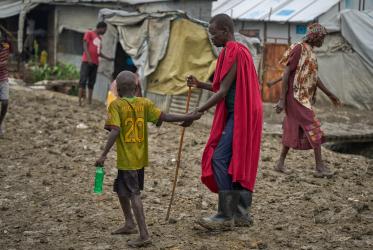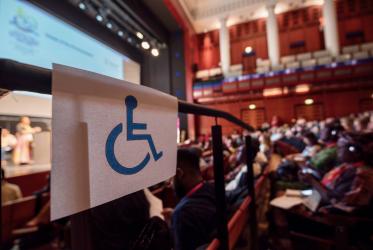Displaying 1 - 20 of 484
Compendium of Promising Practices of African Faith Community Interventions against Paediatric and Adolescent HIV
Executive Summary
23 March 2024
In Angola, WCC takes human rights approach to obstetric fistula
01 February 2024
Churches in Africa agree on guidelines for disability inclusion
19 December 2023
WCC webinar explores decolonizing beauty
11 December 2023
Beginning soon: 16 Days against Sexual and Gender-Based Violence
21 November 2023
WCC guide raises awareness of obstetric fistula
26 October 2023
A Guide for Churches on the Prevention of Obstetric Fistula
26 October 2023
Recommended Practices to Combat HIV-Related Stigma
A Guidebook for Local Faith Communities
05 October 2023
Faith Sector Implementation of the Global AIDS Strategy
05 October 2023



















